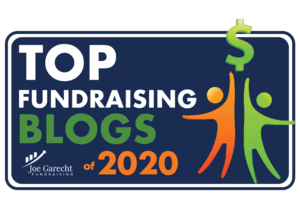There is an adage, first published in The Bankers Magazine (1964) that advises wisely:
If you find yourself in a hole, stop digging.”
The Law of Holes suggests we should strive to not make bad situations worse through further unhelpful, counter-productive behavior.
 Sadly, many people, including nonprofit managers and fundraising professionals, fail to heed that fine advice. Instead, when in a bad situation or when confronted by criticism, many folks make matters worse by reacting defensively, acting helplessly, remaining in denial, criticizing the critic, or ignoring the situation altogether.
Sadly, many people, including nonprofit managers and fundraising professionals, fail to heed that fine advice. Instead, when in a bad situation or when confronted by criticism, many folks make matters worse by reacting defensively, acting helplessly, remaining in denial, criticizing the critic, or ignoring the situation altogether.
Fortunately, many people handle criticism gracefully and, in the process, set a fine example for the rest of us.
Recently, I wrote about my wife’s failed attempt to donate to a local charity. While my wife and I have never supported the organization, we do agree with its mission. Therefore, it was with great interest that I noticed that the charity was hosting a fundraising event with a speaker I wanted to hear. My wife went to the organization’s website to buy tickets. However, due to a website glitch, she was unable to complete the transaction. So, she then called the organization during office hours. Not being able to reach a live person, she left a voice-mail message. No one from the organization returned her call. We ended up not attending the event.
After I posted about my wife’s experience and what fundraisers can learn from it, I sent the organization’s Executive Director an email and a link to my article. I sent the email on Tuesday evening at 7:01 PM. I expected one of two things to happen: 1) I thought I might receive a defensive response the following business day, or 2) I might not receive any reply, ever.
Instead, my guess was happily wrong. That very evening at 7:21 PM, I received a message from the Executive Director. We can learn much from the tone and content of his response:
Dear Michael,
Your email was both upsetting and instructive. I appreciated the spirit of the message and have already begun to think about how to use it to create change and improve. Also I read your blog. I’m curious if you are a professional fundraiser? Either way you and your wife have my apologies for this unfortunate experience. It is clearly our loss when customers and potential friends are turned off. It’s contrary to the purpose of running these events and clearly counter productive.
In addition to my apologies you have my gratitude for bringing this to my attention.
Sincerely,
(name withheld here)”
Here is what we can learn from the email response:









 Unable to buy the event tickets online, my wife called the charity to try to purchase the tickets by phone. No one answered. She left a voice-mail message. No one returned her call.
Unable to buy the event tickets online, my wife called the charity to try to purchase the tickets by phone. No one answered. She left a voice-mail message. No one returned her call.
 As the winner of the Association of Fundraising Professionals-Skystone Partners Prize for Research in Philanthropy and Fundraising for my bestselling book
As the winner of the Association of Fundraising Professionals-Skystone Partners Prize for Research in Philanthropy and Fundraising for my bestselling book  Whether you’re pro-Trump or anti-Trump is not the issue. What the two examples above demonstrate is the importance of defining objectives. If De Niro and Wolf wanted to diminish Trump’s political support – and I recognize that might not have been their objective — they flopped even as their fans cheered and laughed.
Whether you’re pro-Trump or anti-Trump is not the issue. What the two examples above demonstrate is the importance of defining objectives. If De Niro and Wolf wanted to diminish Trump’s political support – and I recognize that might not have been their objective — they flopped even as their fans cheered and laughed.